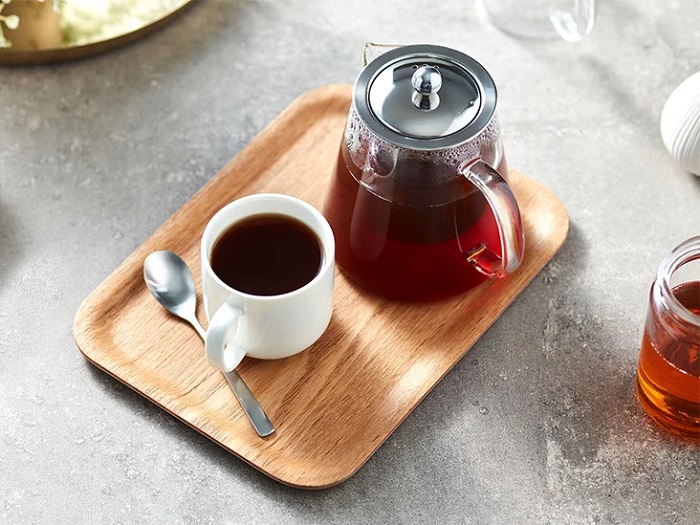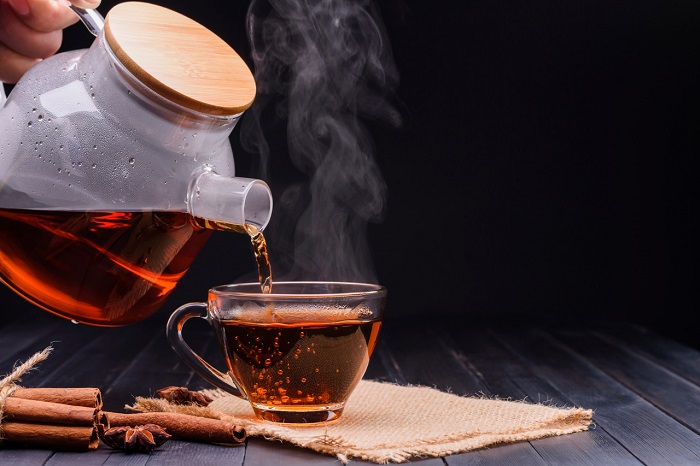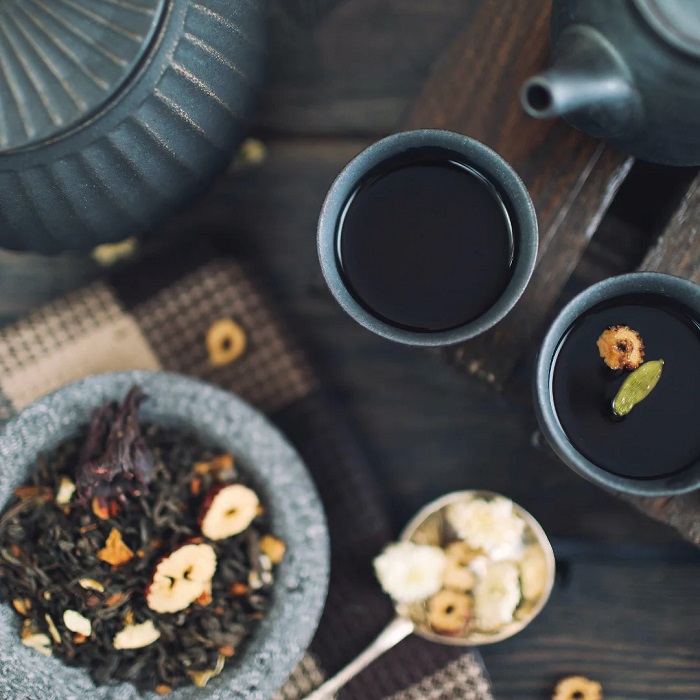The exquisite black tea is an ancient beverage, dating back as far as 5000 years in China. Made from the Camellia Sinensis plant, it’s the most oxidized variety, meaning that the raw leaves are exposed to oxygen for a longer period of time before being roasted, resulting in sturdiness and a longer-lasting flavour.
This gave it an advantage over the delicate green, white and oolong teas, and it became the most sought-after black tea for sale by merchants interested in shipping it to other countries. The majority of black teas today are grown in China, where the name usually refers to aged and fermented teas like the Pu-erh, and India famed for the Assam and Darjeeling varieties. However, there are also other countries that produce specialty black teas including Japan, Nepal, Sri Lanka, and Vietnam.
The Richness of Blends and Flavours

Today, black tea is one of the most popular types, with blends that even the fussiest of tea drinkers love. From the famous Earl Grey, the English Breakfast blend, Masala Chai, to our very own Australian Breakfast blend and more, there are many options of black teas for you to brew and indulge in. Although with similar characteristics, these distinct blends have different flavour notes.
The classic, unflavoured, plain black tea is often described as bold, malty, earthy, and smoky with a full body and darker amber or copper colour. The Chinese teas can be astringent and dry, whereas the English Breakfast, Irish Breakfast, and Assam have a more natural sweetness, hints of malt and toast with a robust body.
Other blends come with subtle fruity notes like peaches or apricots, or the muscatel and nutty hints of the Darjeeling tea. The loose leaf black tea has natural sweet notes without any added sweeteners, while those that are actually smoked when dried tend to have smoky notes. The flavoured varieties include Masala Chai with an Indian spice blend of ginger, cloves, and cinnamon, and Earl Grey, which is flavoured with the oil of bergamot giving it a mild, smooth, refreshing, and flowery taste.
Ceylon black tea is commonly used in chilled tea drinks because of its zesty, delicious flavour. This Sri Lankan tea has mild spicy and lemony flavour notes that are pleasant to sip. The list of blends and flavours goes on, so if you are not sure where to start, a sampler pack is a great idea. Each blend is a one-of-a-kind experience and every sip of whichever one you choose will ignite your senses.
The Wealth of Benefits

Tea was originally brewed in enormous vessels and consumed as a culinary foundation. This practice evolved into drinking boiled leaves for medical purposes over time. The leaves were then treated in multiple ways and consumed for societal, religious, culinary, and therapeutic reasons as tea culture evolved. Today, millions of people enjoy sipping it for its flavour as much as for the multitude of health benefits.
Since it is rich in polyphenols, a type of antioxidant that can be in groups like catechins, theaflavins (no other type of tea has them) and thearubigins, black tea is known to promote overall health and protect from several chronic diseases. Specifically, it’s good for:
- The heart – Flavonoids, another group of antioxidants, help reduce many risk factors for heart disease, including high blood pressure, high cholesterol, high blood sugar, elevated levels of triglycerides, and obesity. Regular tea drinking decreases the clogging of arteries and cardiovascular events such as heart attack and stroke, and reduces LDL cholesterol.
- The blood pressure – Studies have found that daily consumption for longer than three months can lower hypertension as well as the risk of stroke and dementia.
- The cells – The polyphenols may help slow down the development of certain types of cancer, and protect the cells from DNA damage. Studies have shown that it might help prevent oral cancer, breast, lung, and thyroid cancers.
- The gut – Black tea contains antimicrobial properties that kill harmful substances and improve gut bacteria by helping repair the lining of the digestive tract. It is also considered an effective treatment for diarrhoea.
- The immunity – The catechins and tannins in the tea boost the immunity system and help the body fight viruses, so it provides protection from the common cold and influenza.
- Some other surprising uses of black tea as a cold compress include soothing cuts and scrapes, swollen gums, eye irritation, and itching caused by poison ivy. It can further be of help with inflammations, it is beneficial for the skin and hair, and can even be used as a diluted soak perfect for getting rid of foot odour.
Serving Tips

When it comes to preparing this beverage, things are very simple. Heat your water to boiling and steep one teaspoon of leaves for every six ounces. Leave it for about 3 to 5 minutes depending on how strong you like it and enjoy.
You can find black tea for sale in loose leaves or tea bags, although the former is preferred among tea enthusiasts as it is an artisan tea and a better way to get all the benefits. As to whether to drink it hot or cold, it’s up to your personal choice. However, some will advise that to ensure the optimal derivation of extract of the tea, you should drink it hot.
The milder and slightly lighter teas are delicious when taken on their own without any milk or sweetener, while the stronger, richer blends go well with milk and sugar. Keep in mind, black tea contains caffeine, about 50 to 90 milligrams per cup, so to avoid restlessness and inability to sleep, keep the intake under 400 milligrams.
Final Word
Black tea has a lot to offer – an array of flavours, hints, notes, scents, and the immense pleasure of tea drinking. From boosting energy and alertness to promoting health and wellness, every sip is meant to be savoured.












